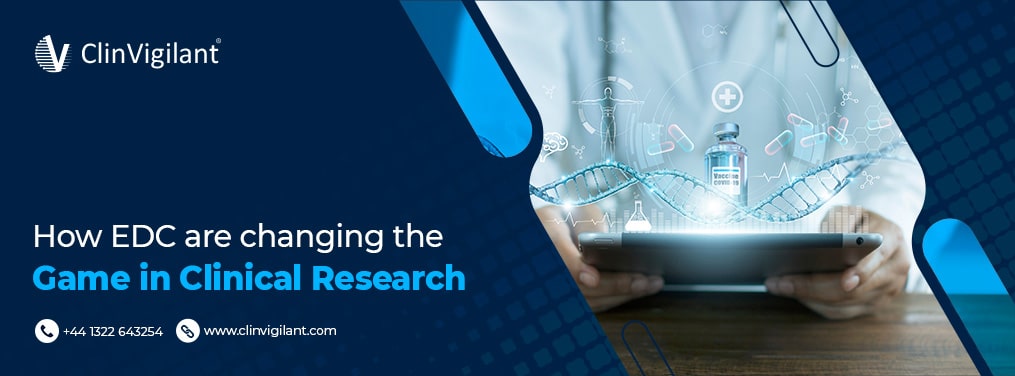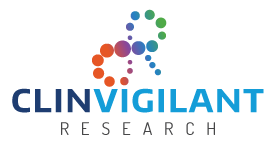
Introduction
The use of Electronic Data Capture (EDC) systems in clinical research is revolutionizing the way clinical trials are conducted. EDC systems provide a reliable, secure, and easy-to-use platform for collecting and managing patient data during a clinical trial. By allowing medical professionals to easily capture information on electronic forms, EDCs have dramatically decreased the amount of time needed for data entry and analysis.
Additionally, EDCs can enhance communication between sites involved in a study by providing real-time access to critical information. This makes it easier to monitor trends and progress throughout the course of the study.
Using this technology has allowed companies to more effectively track their data points while eliminating costly errors that could occur when manually logging patient information. Furthermore, it allows sites to quickly adjust protocols and dosages if needed. This improved accuracy has given researchers the ability to conduct larger-scale trials in less time than ever before.
The use of EDC systems also presents many new opportunities for drug development. Researchers can now store large volumes of patient information more efficiently, allowing them to identify patterns that would have previously been impossible with manual data collection methods.
Additionally, the ability to collect real-time data from remote locations has enabled clinical research teams to conduct more geographically diverse studies.
What is Electronic Data Capture
Electronic Data Capture (EDC) is a form of technology that enables the collection and storage of electronic data, such as patient medical records, lab results, survey responses and clinical trial data. EDC systems are used to streamline the collection of study-related information in a secure environment. This technology helps reduce costs and time associated with manual data entry by automating the process.
Additionally, EDC can improve the accuracy of documentation since it relies on real-time data entry and embedded logic to validate the accuracy of record entries. With improved efficiency and accuracy, EDC ensures organizations have access to timely information for decision making.
The benefits of Electronic Data Capture include automated workflows, reduced errors due to enhanced validation checks, better data quality, and more efficient data management. These benefits can help organizations save time and money, while providing higher quality data.
EDC has become an important tool in helping organizations manage their research projects efficiently. With its ability to streamline data collection processes, improve accuracy, reduce costs and ensure regulatory compliance, EDC is becoming increasingly popular in the healthcare industry and beyond.
How Electronic Data Capture Improves Efficiency and Compliance
Electronic Data Capture (EDC) is a growing trend in the healthcare industry. It is the use of electronic systems to collect and manage clinical data for research and clinical trials, as well as other healthcare activities. eCRF In Clinical Trials has many benefits, including improved efficiency and compliance with regulations.
Using EDC technology helps streamline the process of collecting and sharing information within a clinical trial or research study. Instead of manually entering individual patient records into paper documents, researchers can store data electronically in an eCRF In Clinical Trials system for easy retrieval later on.
This eliminates redundant data entry errors and reduces paperwork time considerably. Additionally, it reduces costs associated with manual recordkeeping since manual filing requires large amounts of storage space for paper files.
Overall, Electronic Data Capture offers healthcare providers a wealth of benefits related to efficiency and compliance
How Electronic Data Capture Promotes Collaboration Across Teams and With Partners
Electronic Data Capture In Clinical Trials improve efficiency and compliance in several ways:
Enhancing Collaboration Across Teams
Electronic data capture (EDC) has become an essential tool for promoting collaboration between teams and partners. With EDC, organizations can quickly share data across departments and with partners in real time.
This allows teams to work together more efficiently, making it easier to make decisions based on the most up-to-date information. It also helps reduce the need for tedious manual paperwork and ensure accuracy of collected data.
Streamlining Communication Processes
EDC also streamlines communication processes within teams and with partners. Through a centralized platform, important information is easy to locate, update or access by all users with appropriate permissions.
Teams that have integrated EDC can collaborate more effectively and quickly, since the data is always up-to-date. Furthermore, partners have access to real-time information which allows them to make decisions faster and more accurately.
Improving Efficiency
With Electronic Data Capture In Clinical Trials, teams are able to work on projects together in a much more efficient manner. The process of collecting data is simplified as Electronic Data Capture In Clinical Trials enables organizations to input, store and retrieve it in an organized manner.
This eliminates manual paperwork and lengthy processes that often slow down operations. Additionally, collaborations between teams are improved because everyone has access to the same information at all times.
Enhancing Security
EDC also enhances security when collaborating with partners or other teams. With EDC, all data is securely stored and only authorized users can access it. This ensures that sensitive data is not compromised while sharing or accessing information. Additionally, EDC In Clinical Trials systems have built-in safeguards to protect against unauthorized access and malicious attacks.
In conclusion, EDC offers numerous benefits for organizations looking to collaborate with others across teams and partners. It helps streamline communication processes, improve efficiency, enhance security and promote collaboration among members of a team or partner organization in real time. Organizations should consider implementing an EDC Clinical Trials system if they are looking to maximize their collaborative efforts.
Consider the following guidelines when implementing an Electronic data capture system for pharmaceutical companies:
1.The primary concern of any pharmaceutical company is to comply with regulatory standards. An Electronic Data Capture (EDC) system should be designed and implemented in such a way that it meets all FDA and other applicable regulations. EDC systems are designed to ensure accuracy, reliability, traceability, and compliance with the industry’s data protection protocols including Good Clinical Practices (GCPs).
2. A powerful security protocol should be put in place to protect the data stored within an EDC system from unauthorized access or modification. This can include measures such as two-factor authentication, encryption of sensitive information, firewalls, password policies etc.
3.An EDC system should be designed in such a way that it is easy to use and navigate for users. The user interface should be intuitive and contain features that enable quick data entry, searching, sorting, etc.
4. It is important to have an EDC system that can be easily integrated with other systems such as laboratory information management systems (LIMS) or electronic health records (EHRs). This ensures that the data collected by EDC can be shared and used efficiently across different departments of the company.
5. As the business grows, new components may need to be added or existing ones might need to be replaced. To ensure that the EDC system is up to date and meets the business’s changing needs, it should be built on a scalable platform that allows for easy integration of new software and hardware components.
Conclusion
In conclusion, EDCs are playing a critical role in revolutionizing the way clinical research is conducted. By automating the data collection and simplifying the process of capturing and analyzing vast amounts of data, EDCs allow clinicians to access real-time information quickly and accurately.
They enable researchers to better understand how treatments are affecting patients by providing more objective measures throughout a patient’s care journey. As EDC technology continues to evolve, it will continue to provide new opportunities for healthcare providers, researchers, and drug developers alike.

